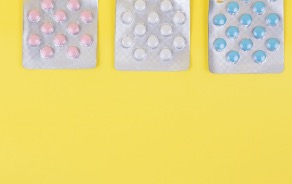
Hair loss concerns and how to treat them
Most of the time, we notice our hair shed off when we take a shower or comb our hair. This is normal and insignificant to the volume of our hair. However, there are instances where some men seem to have a very noticeable amount of loss of hair. Usually, a receding hairline and some bald spots are common symptoms of hair loss in men.
This is known as male pattern baldness, or androgenic alopecia. This is traced to be a genetic condition and around two-thirds of men will eventually have hair loss problems at age 35. At an older age, eventually, men will experience weakening of the hair follicles making hair thinner and shorter.
Our hair gives an impression of our personality and it gives us a way to express ourselves by styling it, and so male pattern baldness can affect a person’s confidence and self-esteem. Of course, there is a need to treat this problem.
However, it is unfortunate that it is very common to see “miracle products” or all-natural remedies to permanently stop hair loss. These are not as effective as they claim. This misinformation is very dangerous and expensive for men with hair loss concerns.
Other questionable treatment methods are the very expensive treatments that have very few successful treatment outcomes. These include laser combs, hair oils, corticosteroids, and even surgery.
Despite the previously stated shams, many other available medications can be effective in preventing further hair loss brought by androgenic alopecia. These kinds of treatment usually require patience since the program for these lasts for a couple of months. Medical studies have vouched for the effectiveness of Finasteride, an oral medication, for hair loss prevention in men.

How Finasteride works
Finasteride is a well-used medication for hair loss prevention in men because it is FDA-approved and easy to use. This oral drug is also known with its brand name: Propecia.
It is important to know how a drug works so that we know how it can affect our bodies. Several studies have related Finasteride to the production of the hormone dihydrotestosterone (DHT). This hormone can cause the hair to stop growing because of the weakening of the hair follicles supporting the growth of each hair strand.
What Finasteride does is it alters this hormone. It is capable of decreasing the amount of the body’s DHT so that men with male pattern baldness can increase hair regrowth and slow down the progression of hair falling off.
Given the evidence that can support the effectiveness of Finasteride in hair loss, it should be noted that it mainly affects the scalp and that the growth of hair in other parts of the body will not be affected by a sudden increase in growth.
Moreover, precaution is needed with this medicine as it cannot be given to women and children, and this drug should not be used as oral prevention to prostate cancer. The use of Finasteride should be closely monitored and consulted with a doctor so that you will be well-informed and safe.

How to use Finasteride
Finasteride is an oral medication. This is available in tablet form, making it suitable and easy to use since it is a long-term kind of medication. It can be taken with or without prior food intake. Usually, this drug is taken once or twice a day, depending on your case.
Take note that dosage and intake per day should be consulted with a medical doctor and you need to follow the prescription so that you can see the desired effect. It can take up to 3 months to see improvement in your hair loss problems.
Advantages of Finasteride
Since Finasteride is FDA-approved, it is considered a safe treatment option. Also, it is proven to work for as much as 85% of men as they can have regrowth of hair in about 3 to 4 months of continuous use. Finasteride is an effective treatment option for fighting male pattern baldness and so far, one of the only FDA-approved medications for this.
Now, Finasteride might be misconceived as a complete cure for male pattern baldness. It is not. It halts the progression of hair loss by minimizing the effect of DHT on the hair follicles. As a result, hair can grow again in the hair follicles which are supposedly weakened by the DHT hormone.

Does Finasteride have side effects?
No drug goes completely without side effects. Some of the reported side effects of Finasteride are allergies, neurologic problems like mental fogginess, anxiety, depression, problems with ejaculation, and testicular pain. These effects happen because the drug affects the DHT hormone. This is why it is very important to have a constant check-up with a doctor to guide you, especially if you feel severe side effects from the drug, which are a very rare occurrence.
Some drugs cannot be used along with Finasteride. Intake of non-steroidal anti-inflammatory drugs (NSAIDs) such as Aleve, Motrin, and Advil are avoided, because they can cause increased sexual dysfunction if taken simultaneously. Another contraindication is for men who are suffering from chronic liver disease.
Treatment outcomes
Finasteride is not a magical solution to male pattern baldness. It does not give miracle effects, but it is effective in stopping hair loss. Men who used Finasteride have improved hair quality upon constant use. You should keep on taking it because if you stop, your hair can fall out again eventually. Treatment outcomes are also drastically improved with the constant guidance of a doctor, as they are the ones who can diagnose and prescribe the medicine appropriate for you.
Ready to get started? Click Here to Schedule a Free Consultation!

